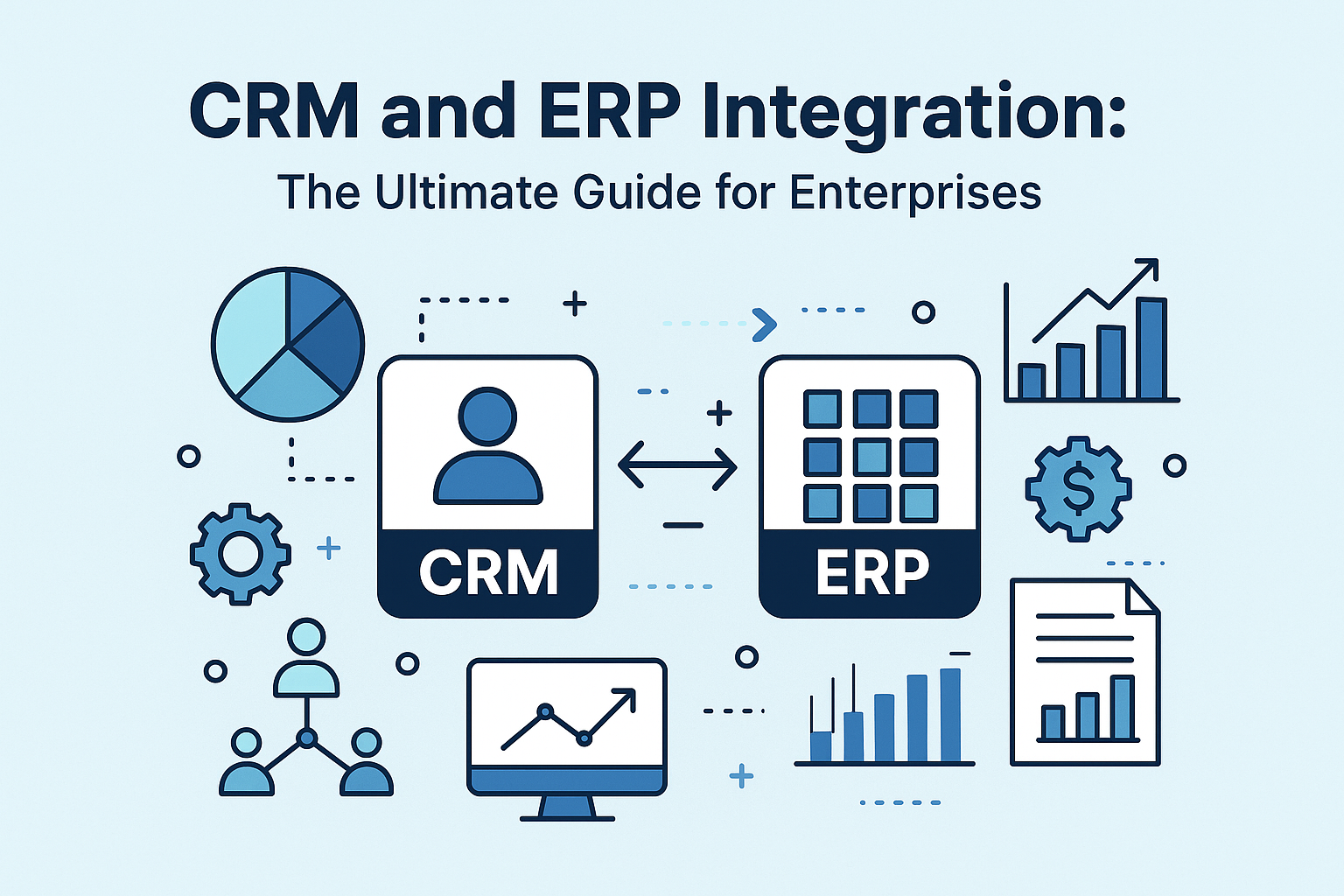Seamless operations and data-driven decisions are key to staying competitive. Learn how CRM-ERP integration can revolutionize your business.
What is CRM and ERP Integration?
CRM systems manage customer interactions, sales pipelines, and marketing campaigns, while ERP systems handle core business operations like inventory, supply chain, and financials. Integration connects these platforms, enabling real-time data sharing and unified workflows.
| Aspect | Details |
|---|---|
| Benefits |
|
| Challenges |
|
| Integration Approaches |
|
Best Practices for Successful CRM-ERP Integration
- Define Clear Objectives: Set goals to guide the process.
- Choose the Right Integration Platform: Use solutions like MuleSoft or custom APIs.
- Map Data Flows: Understand how data moves between systems.
- Prioritize Data Security: Implement encryption and access controls.
- Test Extensively: Simulate real scenarios before launch.
- Train Your Team: Ensure users are comfortable with new workflows.
- Monitor and Optimize: Track KPIs and continuously improve.
Popular CRM and ERP Combinations
- Salesforce and SAP: Robust and customizable for enterprises.
- Microsoft Dynamics 365: Offers both CRM and ERP in one suite.
- HubSpot and NetSuite: Ideal for mid-sized, cloud-based businesses.
- Zoho CRM and Zoho Books: Affordable for small businesses.
How to Choose the Right Integration Approach
- Point-to-Point Integration: Simple and direct but less scalable.
- Middleware Integration: Flexible and ideal for complex systems.
- Cloud-Based Integration: Great for agility and real-time updates.
- Custom APIs: Tailored for unique needs, requires technical skill.
Future Trends in CRM-ERP Integration
- AI-Powered Insights
- IoT Integration
- Low-Code Platforms
- Mobile Accessibility
Conclusion
CRM and ERP integration is essential for modern enterprises. It empowers teams with real-time insights, automation, and improved collaboration. With the right approach and tools, your business can enhance efficiency, scalability, and customer satisfaction.
Start your integration journey today and future-proof your enterprise for success.

